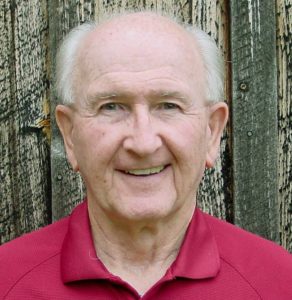VIEW FROM WEST DAVENPORT
Democrats Keep Placing
Blame On The Other Guy
By MIKE ZAGATA • Special to www.AllOTSEGO.com
If you’ve been following the governor’s response to the inability of folks on Long Island or Westchester County to acquire natural gas from Con Ed or National Grid to heat their homes, you must be flabbergasted by the newest twist of events. The governor is now blaming the Public Service Commission and the DEC, two agencies he controls, for the energy shortfall. Come-on man – bite the bullet and take responsibility for the problem you created.

Along those lines, I read with interest in last week’s issue of this paper a call for the Democrats to take over the majority control of the Board via this year’s election. I admire the author for his candor, but I take issue with his approach to bettering the quality of our lives. Using quotes from the McEvoy Memo as a basis, here’s what will happen to our County if the Democrats win a true majority. I’m doing this at the same time another paper released a six pages list of about 1,800 names of people who are delinquent with their taxes. What does that tell you about our economy and the agenda of those who have habitually opposed the energy and infra-structure needed to grow our economy?
Let’s break down some of his quotes into manageable bits:
• “There is a fundamental sentiment that current and past leadership has done little more than
manage the slow senescence of our region. Our current economy is a reflection of the ills of decades of declining population, unhealthy demographic trend lines, and systematic under-investment in our physical, energy, information, and human infrastructure.” You must be kidding me. A Democrat had the audacity to write that – in spite of the fact they have repeatedly opposed anything that would change the status quo.
• “We could finally pursue critical green initiatives.” Who is it that has opposed the proposed wind farms? Who was it that opposed the proposed biomass plant? What is a “green” initiative? What we should be pursuing are initiatives that are supported by good science that will, for every dollar invested, improve the quality of our environment. Wind farms and solar farms may or may not do that. In order to site them, either agricultural or forest land must be cleared. That agricultural or forest land was sequestering carbon via the process of photosynthesis and won’t do that after being cleared. Will the electricity generated by wind or solar farms that will occupy that land produce enough electricity to reduce the need for fossil fuels by enough to offset that loss? If not, we shouldn’t do it.
• “With the goal of protecting our natural and agricultural land.” Do we want to protect/preserve or manage? We protected for decades and found out that by favoring mature forests we were inadvertently evicting those species of birds and other wildlife that depended on grasslands, brush and young forests. The Audubon Society and The Nature Conservancy are now supporting forest management, not preservation, via the “Young Forest Initiative” is an effort to restore the population levels of about 43 species of migratory birds. In addition, research has shown that young forests sequester more Carbon than older, mature forests.
• “Increasing our appeal to tourists.” Lake George attracts more tourists annually than we ever will and, guess what, they found out you can’t build an economy in upstate New York on tourism alone. There isn’t anything to do during the “shoulder” months and thus full-time employment isn’t an option. Folks leave looking for full-time jobs and those who live here complain about the short-term renters.
• “Doing our part to fight climate change.” What does that mean and what will it cost? Are we talking about the “Green New Deal”? If so, we simply can’t afford it. Are we talking about adopting what the city of Seattle did to address climate change?
They implemented a mandate to force residents to switch from using heating oil to an alternative energy source (not yet sure what that will be) by levying a high tax on fuel oil. The average cost of the proposed conversion was $10,000. If we can’t afford to pay our taxes, can we afford to pay more to heat our homes and cook our food?
One thing we could do is attempt to find ways to encourage organic farming where we might cut the emissions and environmental pollution from chemicals and synthetic fertilizers. Unfortunately, it takes about 40% more land to produce the same yield obtained when those chemicals are used. That being the case, the trick is to clean up these practices in ways that don’t require converting more land to agriculture to produce the same amount of food or forcing large parts of the world to go hungry. It seems there are always trade-offs.
• “Smart invasive species control.” Just exactly what is that and, once you define it, how do you expect to pay for it? Please read the list of invasive species, including Japanese Knot Weed, and list just one that we have eradicated. Unfortunately, herbicides are the most cost-effective and effective way to control, not eliminate, invasives.
• “Continuing to resist fracking and other extractive land uses.” Do you use oil or natural gas to heat your home or cook your food? If you do, you simply can’t support this agenda item without being a hypocrite. Do you drive on salted roads in the winter? If you do, then you can’t support banning extractive land use as salt is mined.
Final quote: “imagine an Otsego County where the agenda is being set by a Democratic chair.” In all honesty, I’m having a hard time doing that. I hope a majority of the readers agree.
Mike Zagata, a DEC commissioner in the Pataki Administration and former environmental executive for Fortune 500 companies, lives in West Davenport.

